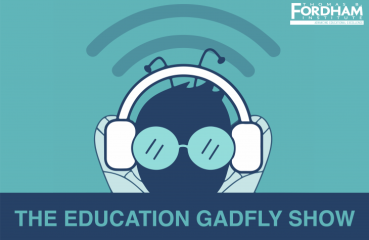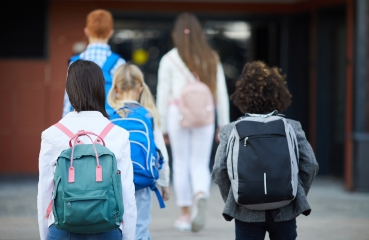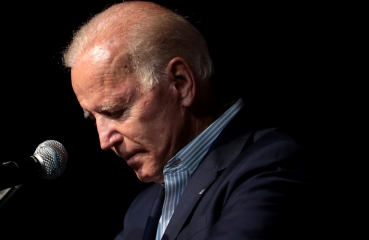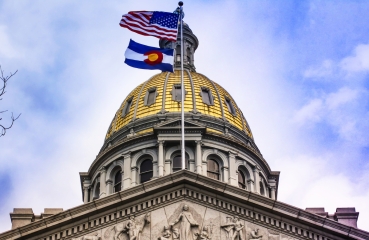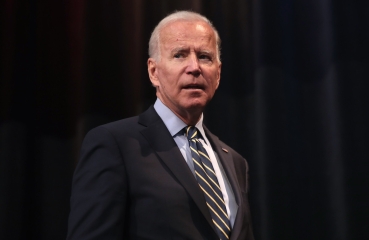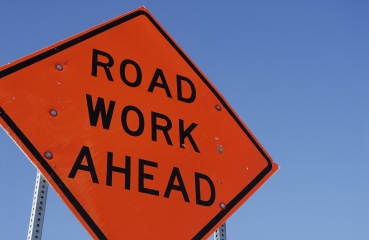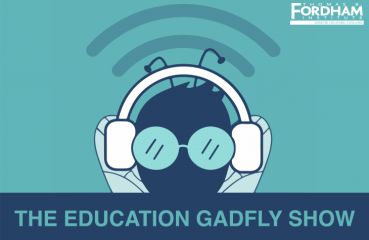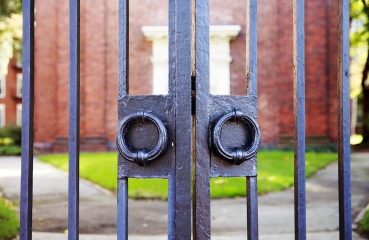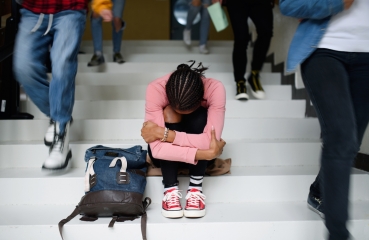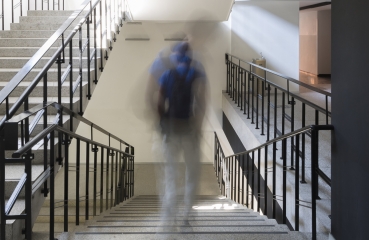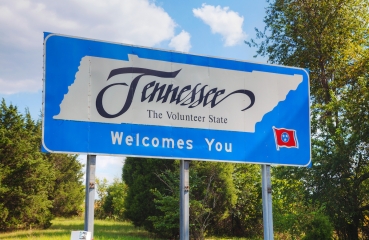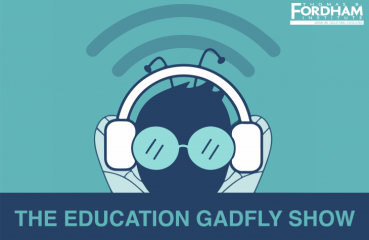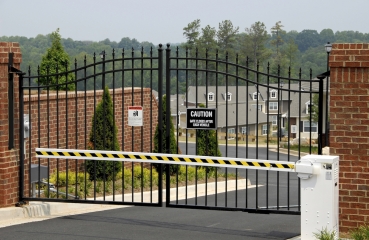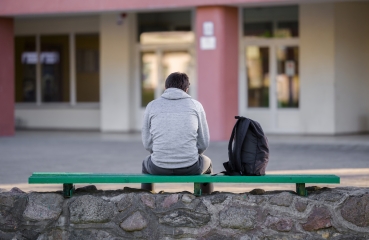What we're reading this week: April 14, 2022
The Education Gadfly“Is political engagement contributing to the teen mental health crisis?” —Kristen Soltis Anderson Tennessee’s year-old law on teaching race and gender has led to only one complaint, leaving both sides feeling vindicated.
Education Gadfly Show #815: Paul Hill vs. Checker Finn: Does Denver prove that portfolio districts are doomed?
On this week’s Education Gadfly Show podcast (listen on Apple Podcasts and Spotify), Paul Hill
Course choice: The ideal post-pandemic policy solution
Michael BrickmanEditor’s note: This was first published by the American Enterprise Institute.
Polish schools in plague and war: A dispatch from the education front lines
Terry RyanCovid-19 and the miseries it caused families, children, and educators around the world over the last two years seems finally to be ebbing. But in Poland where I am writing this, the plague has been followed by a brutal and senseless war in neighboring Ukraine.
Biden goes all in on the teachers unions’ agenda
Dale ChuWith Democrats facing trouble in the midterm elections, the Biden administration has inexplicably decided to try to stave off disaster by doubling down on the teachers unions’ hoary anti-reform agenda. One example is its not-so-sneak attack on charter schools in the form of execrable regulations that could bring charter growth to a standstill. But it’s not the only one.
Denver doesn’t spell doom for portfolio-style reform
Paul T. HillLast week, Chester Finn used a recent vote of Denver’s anti-reform school board to make three points: first, that the “portfolio” reform there—based on school autonomy, family choice, and chartering out schools where kids aren’t learning—is finished; second, that Denver’s reversal predicts doom elsewhere for complex reform initiatives meant to transform the ways whole public systems operate; an
More reform lessons from Denver
Susan Miller, Tom CoyneAfter living through the transformation of K–12 education in Alberta, Canada, we moved from Calgary to Colorado in 2010. Since then, we have watched the Denver Public Schools story unfold from next door in Jefferson County.
The college readiness battle is won or lost in elementary school
Michael J. PetrilliEarlier this year, I took to the pages of Education Next to make the case for NAEP to test starting in kindergarten, stating that, “The rationale for testing academic skills in the early elementary grades is powerful.” Therefore, “Starting NAEP in 4th grade is much too late.” I was wrong, and I’m sorry. Kindergarten is much too late. We must begin a program of NAEP testing for newborns.
Denver’s cautionary tale for the “charter-lite” strategy
Chester E. Finn, Jr.It’s no secret that Denver’s latest school board is wreaking havoc on the suite of bold education reforms that the Mile High City was known for over the past two decades.
Biden administration’s proposed rules for Charter School Program empower districts at the expense of communities
Christy WolfeThe Biden administration is proposing an unprecedented rewrite of the bipartisan federal Charter Schools Program (CSP): new regulations that are unprecedented not just for the CSP but for all federal K–12 programs.
Why we should follow the science—to school
Michael J. PetrilliA new edited volume, “Follow the Science to School,” aims to identify what science tells us about evidence-based practices in elementary schools, and describes what they look like in the real world of classrooms. Following the science into its application in this way—and sharing how it works on the ground—enables us to suggest workable answers to key questions rather than challenging every teacher, school, or district, to figure out those answers on their own.
Lively days for NAEP
Chester E. Finn, Jr.Those who pay attention to the “Nation’s Report Card” tend to take it for granted. In truth, most people heed it not at all.
Curriculum wars are inevitable and necessary
Daniel BuckThere is much to love in George Packer’s essay on the culture wars and education in The Atlantic. He castigates both sides of the partisan aisle for their follies: the left’s support for school closures “far longer than either the science or welfare of children justified” and the
NAEP: Meeting today’s needs and building a national assessment for the future
Peggy G. Carr, Lesley MuldoonJoint Statement from Peggy G. Carr, Ph.D., Commissioner of the National Center for Education Statistics and Lesley Muldoon, Executive Director of the National Assessment Governing Board
Work instead of school: A better approach for our lowest-performing students?
Michael J. PetrilliHigh school-age Americans struggling mightily with academics aren’t well served by our current approach to secondary education. But there may be a better model that would give them a more worthwhile experience and lead to better long-term outcomes: Let them take jobs while still in high school—during the school day, during both their junior and senior years, full pay included, no strings attached.
Civic education and the battle for Ukraine
Chester E. Finn, Jr.We’re all watching the news and hating what we’re seeing, the one big exception being the patriotic heroism of millions of Ukrainians (and the much smaller but still impressive collection of others who have been traveling to Ukraine to join the fight for freedom).
San Francisco’s detracking experiment
Tom LovelessEditor's note: This post was originally published on tomloveless.com.
Education Gadfly Show #811: How one district scouts for talent for its gifted programs
On this week’s Education Gadfly Show podcast, April Wells, Gifted Coordinator in Illinois School District U-46 and
Keep fighting for selective high schools
Brandon L. WrightIn cities across the country, selective high schools are facing increasing pressure to change their admissions policies to make their incoming student populations more socioeconomically and racially diverse. Closing these gaps is a laudable and important goal. But the most common strategies for accomplishing it are racially discriminatory, misguided, and ineffective.
Could Great Hearts Academy change the face of private education?
Robert PondiscioRemote learning is hard to love. The nation’s forced experiment in online education the past few years has been a disaster for kids. Educators and parents alike have come to view virtual learning as a necessary evil at best, an ad hoc response to a national crisis.
The casualties of “college for all”
Arthur SamuelsA couple of weeks ago, I shared some ideas about how schools and districts can move away from the well-intentioned but deeply flawed “college for all” mindset that has permeated the education reform world and has, in turn, harmed many of the disadvantaged students whom the approach is m
About that Tennessee pre-K study
David GriffithIt’s rare that a piece of social science makes you question the nature of your reality, but such was my reaction to the latest, much-discussed update on the performance of Tennessee’s pre-k program—or more specifically, on the fate of the 2,990 children from low-income families who applied to oversubscribed pre-K program sites across
Academic and labor market outcomes for adults with some college credits but no degree
Jeff MurrayIn a laudable quest to boost the number of adults with postsecondary credentials, a number of states—including Ohio—are focusing time and treasure on former students who have earned some college credits but
Beyond “Maus”: How Tennessee’s schools are changing for the better
Natalie WexlerTennessee schools have gotten a lot of negative coverage lately. But they’re also the scene of hugely important positive developments that no one is talking about.
Smash-and-grab education reform
Dale ChuEight months out from a midterm election cycle that is shaping up to be a bloodbath for Democrats, Republican Senator Rick Scott recently released an “eleven-point plan to rescue America” that speaks volumes about the GOP’s posture on education. What’s most telling is what’s missing from Scott’s plan: a serious and good faith discussion of the most pressing issues facing our Covid-constrained education system.
Education Gadfly Show #809: Diversity, the law, and the future of selective-admission schools
On this week’s Education Gadfly Show podcast, Fordham’s editorial director, Brandon Wright, joins Mike Petrilli
The hypocrisy of school districts saying they’re “open to all”
Jessica PoinerOpponents of school choice regularly criticize private schools for not taking all comers, contrasting them with traditional public schools, which they claim are open to all. But that’s not true in many places, especially wealthier suburbs, where public schools are typically restricted to students who live within geographic boundaries. Attending them requires a hefty mortgage and property taxes or sky-high rents that are out of the reach of low- and middle-income families.
A principal explains how to repair the harm of “college for all”
Arthur SamuelsAs Michael Petrilli wrote in these pages a few weeks ago, the education reform movement has come to the realization that its belief in “college for all,” while well-intended, was misguided.
End school mask mandates
Daniel BuckThirteen states and D.C. still mandate face masks for students, as do myriad individual districts in places that defer to local leaders. In total, about half of American students have to wear a mask every day. But there’s little evidence that this mitigates the spread of Covid—a consideration that the Omicron variant has made less important anyway—and, more importantly, masking inflicts real educational and emotional harm on students.


